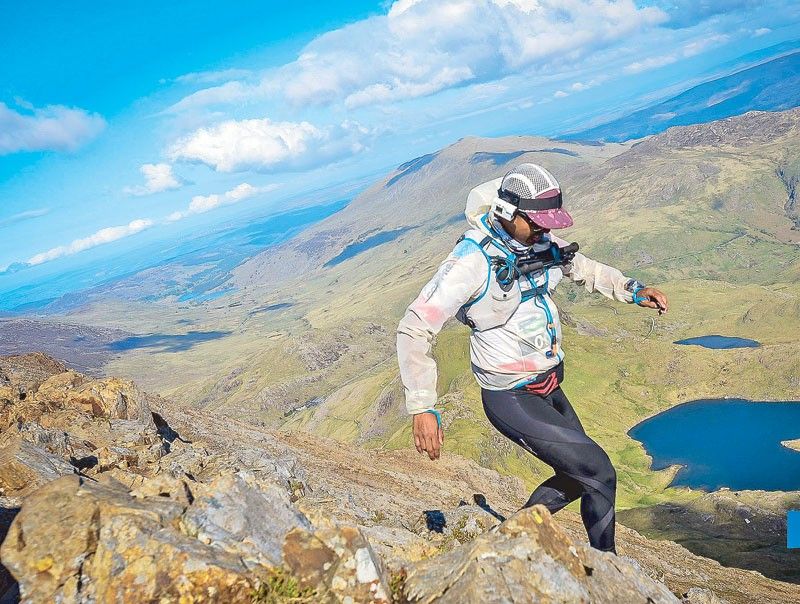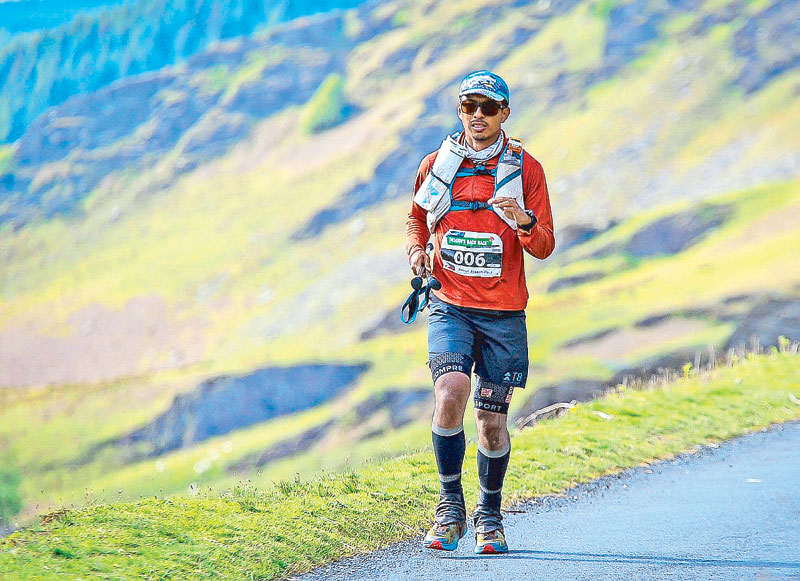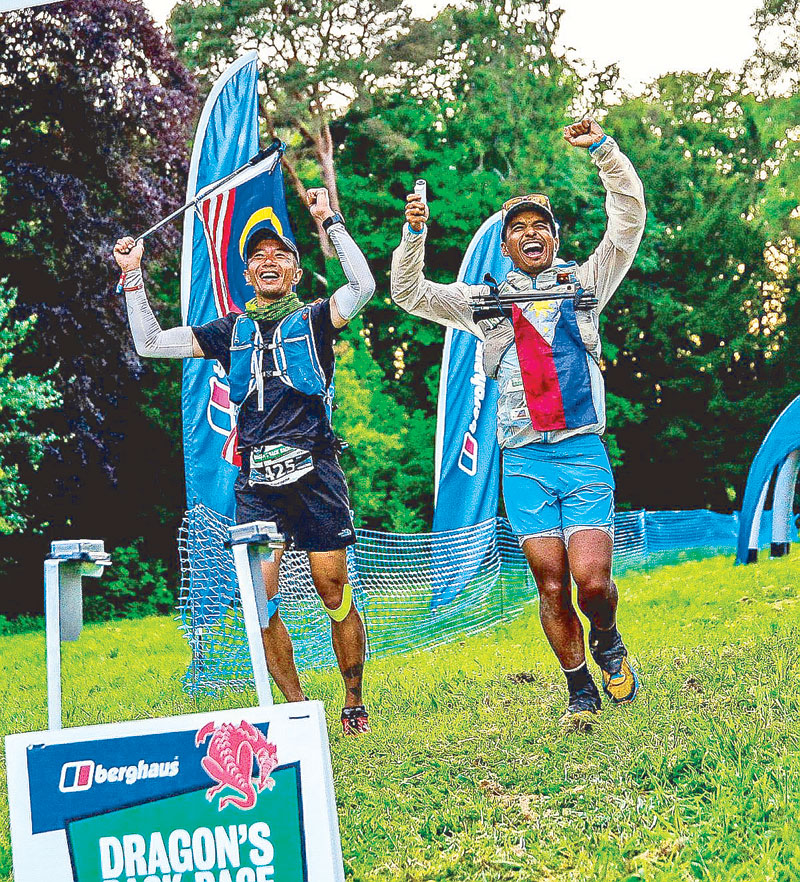Dragon’s riding on the back

MANILA, Philippines — From the majestic mountains of the Cordilleras to the remote Welsh mountains, Benguet-born environmentalist Arthur Joseph Paul Alipio pushed his mind and body beyond limits and “tamed the dragon” in Wales.
Last May, Alipio became the first Filipino to join and finish the legendary Berghaus Dragon’s Back Race along the mountainous spine of Wales from north to south. The 5-day race is 315 kilometers long with 15,500 meters of ascent across wild, trackless, remote and mountainous terrain. Galen Reynolds of Canada, clocking 37:48:06, came in first. Alipio placed 217th with a time of 70:43:46. Only 251 finished the race from a field of over 400 runners.
Alipio, who had been mountain running around the Cordillera ridges with his colleagues and brothers of Pi Sigma Fraternity at the University of the Philippines, admitted, “It was the toughest race I have ever joined.”

Alipio stays the course
The first Dragon’s Back Race was held in September 1992, and since then it has been considered the world’s toughest race, viewed “with a mixture of awe and trepidation” by mountain and ultra runners the world over. It is now held every two years.
“The mountains of Wales are completely different from everything I am used to,” Alipio says. “Much of the route is over very wild land with no trails.”
Navigating through 300-plus kilometers of rough terrain everyday adds to your stress, he explains. “Having to make decisions on routes, which direction to go, picking the best lines through rocks, bogs and grasslands add mental stress to the body.”
Alipio had to wake up early every morning of the race, quickly pack his gear and set out running. “It was so taxing,” he says, adding, “I only got about three to four hours of sleep a night.” On the last night of the race, he hardly got any sleep. “I bonked really badly on the fourth day, depleting my energy store and I couldn’t really get my energy up no matter how much I ate.”

He says the Berghaus Dragon’s Back Race is the toughest and most emotional race he has ever joined. Proudly displaying thier flags, Alipio celebrates with a racer from Malaysia
Doing an ultra distance race everyday for five days really takes its toll on the body, the Benguet ultra racer and environmentalist explains. “You have to be constantly eating because you are burning over 4,000 calories a day and even then you go into a deficit. I lost almost 5 kilos during the race and some of that was muscle already.”
But he dug deep and finished the race. “It was one of the most fulfilling things I have ever done in my life,” he acknowledges.
“I don’t think anything really compares with the Dragon’s Back race. It is one part adventure, one part mountaineering, one part trail running,” he says.
“The route is not marked and you have to navigate every single day and that takes such a huge toll on your energy and mental strength,” Alipio continues. “The course is also extremely technical so you have to have laser focus every single day or you could easily slip and fall off a cliff, sink into a bog, etc.”
Beyond the technical aspect of the race, he says “the best part for me was the camaraderie of the racers, because you are all together in camp everyday and you see each other on the course there is a bond you share with everyone sharing the hardship of this journey.”
“I was starting to break down crying about 20 kms from the end of the fourth day, realizing that the end was in sight,” he confesses. “It was my most emotional race.”
Alipio has been with the environmental movement for decades, being the director of the non-government volunteer group Cordillera Conservation Trust (CCT). The group has existed since 2006 and has over the years implemented different innovative solutions to environmental problems of the Cordillera Region.
CCT in partnership with the Department of Education built 107 forest nurseries in remote elementary schools in Benguet and Ifugao.
In 2015 they started their Sustainable Mountains Initiative to create livelihood opportunities through adventure, teaching communities to develop homestays and sustainable tourism enterprises as an alternative to more destructive practices such as commercial agriculture.
This program, in partnership with the University of Baguio, has trained over 200 households in Itogon, Kabayan and Kibungan and helped increase income by up to 500 percent in some households that adopted the program, providing more sustainable livelihoods that are in tune with the environment.
“As an environmentalist going through such beautiful mountains really reinforced why I got into this work in the first place,” he shares. “Also, seeing the effect of the outdoors on all the competitors made me think of all the people we have influenced to keep it wild through our work at CCT.”
- Latest
- Trending













